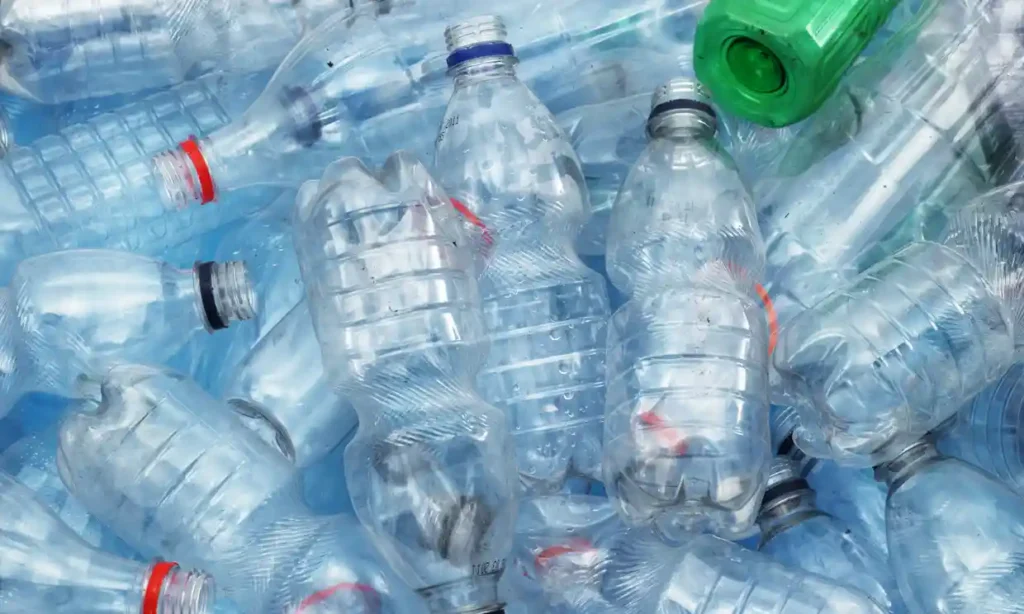Recycled plastic can be more toxic and is no fix for pollution, Greenpeace warns
Campaign group says plastics are incompatible with circular economy as countries prepare for treaty talks

Representatives from 173 countries last year agreed to develop a legally binding treaty covering the ‘full lifecycle’ of plastics from production to disposal. Photo: ermingut/Getty Images
The Indy will from time to time re-publish articles from The Guardian using the Guardian’s Open Platform.
The danger of plastics to our health and our environment is becoming ever more apparent. Microplastics are now routinely detected in human blood and the human brain. As the article below indicates, scientists are realizing that the solution to plastic pollution is not recycling but curtailing plastic pollution. Communities like Nantucket have adopted comprehensive bans on single use plastics, demonstrating that weaning ourselves of plastics is a possibility, even if it feels unimagineable.
Recycling plastic can make it more toxic and should not be considered a solution to the pollution crisis, Greenpeace has warned before the latest round of negotiations for an international plastics treaty.
“Plastics are inherently incompatible with a circular economy,” the global environmental network said in a report that brings together research showing recycled plastics are more toxic than their virgin constituents.
The report, timed to coincide with the beginning of fresh talks for a potential global plastics treaty, comes as separate research has found breaking down plastics for recycling scatters microplastic pollution into the environment.
Representatives from 173 countries last year agreed to develop a legally binding treaty covering the “full lifecycle” of plastics from production to disposal, to be negotiated over the next two years.
Next week they are due to meet in Paris, for talks that have already been criticised for excluding communities in developing countries harmed by dumping and burning of plastic waste, as well as marginalised waste pickers, who are crucial to recycling.
Without those voices, the fear is that negotiations will be swayed by corporate interests. “The plastics industry – including fossil fuel, petrochemical and consumer goods companies – continues to put forward plastic recycling as the solution to the plastic pollution crisis,” said Graham Forbes, who leads Greenpeace USA’s global plastics campaign.
“But … the toxicity of plastic actually increases with recycling. Plastics have no place in a circular economy and it’s clear that the only real solution to ending plastic pollution is to massively reduce plastic production.”
Since the 1950s about 8bn tonnes of plastic has been produced. The Greenpeace report catalogues peer-reviewed research and international studies showing not only that just a tiny proportion (9%) of plastics are ever recycled, but also that those that are end up with higher concentrations of toxic chemicals, multiplying their potential harm to human, animal and environmental health.
Recycled plastics, the report says, often contain higher levels of chemicals such as toxic flame retardants, benzene and other carcinogens, environmental pollutants including brominated and chlorinated dioxins, and numerous endocrine disruptors that can cause changes to the body’s natural hormone levels.
Waste plastics earmarked for recycling are typically exported from high-income countries to poorer parts of the world
Dr Therese Karlsson, a science adviser with the International Pollutants Elimination Network (IPEN), said: “Plastics are made with toxic chemicals, and these chemicals don’t simply go away when plastics are recycled. The science clearly shows that plastic recycling is a toxic endeavour with threats to our health and the environment all along the recycling stream.
“Simply put, plastic poisons the circular economy and our bodies, and pollutes air, water and food. We should not recycle plastics that contain toxic chemicals. Real solutions to the plastics crisis will require global controls on chemicals in plastics and significant reductions in plastic production.”
Plastic production is forecast to triple by 2060. Greenpeace said any global plastics treaty must achieve immediate significant reductions in plastic production, as a first step on a pathway to the total elimination of the manufacture of virgin plastic.
Those plastics that remain must be reused as far as possible, while waste disposal technologies are developed that do not involve simply burning it or burying it, Greenpeace said.
guardian.co.uk © Guardian News & Media Limited 2010
Published via the Guardian News Feed plugin for WordPress.
